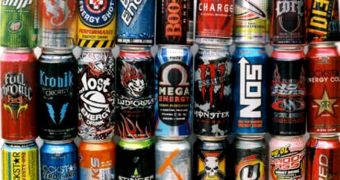One of The DAWN's (Drug Abuse Warning Network) latest issues witnessed the publication of a new report stating that the United States' energy drinks industry might have caused an increase in the number of Americans who ended up in the emergency room over the past few years.
The researchers who looked into this issue explain that, between the years 2007 and 2011, roughly twice as many of this country's residents required urgent medical attention following their consuming said beverages.
Thus, prior to the energy drinks industry's really taking off in this part of the world, about 10,000 people were reported as visiting the ER. However, within the aforementioned time frame, their number soared to a whopping 21,000.
According to Health, 58% of these cases revolved around energy drinks alone, whereas the remainder 42% could also be traced back to drugs and/or alcohol use.
The report also states that men and people aged 18 to 25 are the ones who more often experience the unfortunate consequences of drinking too many such beverages in a relatively short time span.
Despite the fact that energy drinks manufacturers and marketers still maintain that, high concentrations of caffeine aside, their products pose no risks to customers, concerns are now being raised with respect to how safe these beverages really are.
More often than not, the symptoms linked to energy drinks consumption were insomnia, nervousness, headaches, fast heartbeats and even seizures.
“The issue is not the doubling of emergency department visits. That is the symptom. The ‘disease’ is the failure of the federal government to regulate energy drinks as beverages,” commented on the findings of this study Dr. Mary Claire O’Brien from the Wake Forest Baptist Medical Center in Winston Salem, N.C.
This particular study into the effects that energy drinks have on an individual's well-being was carried out at the request of the US Substance Abuse and Mental Health Services Administration.

 14 DAY TRIAL //
14 DAY TRIAL //